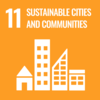‘Decolonising Fashion and Textiles’ is a participatory action-research project exploring the concepts of cultural sustainability and community resilience through the lived experiences of London-based refugees and asylum seekers. The project team created a safe space for participants to meet, learn new skills, and use fashion and textiles to express their shifting identities as they rebuild their life in their place of resettlement.
Through a reciprocal process of making and learning, the project contributed to challenging dominant design practice and shifting prevailing narratives around refugees.
Storytelling sessions were conducted to understand the participants’ personal identities and cultural heritages. Place-based connections between people and organisations were mapped to build a support network and foster community resilience. Through a series of co-design sessions, the participants outlined their collective visions for a more equitable and sustainable future and created culturally meaningful fashion and textile artefacts.
The project team also outlined recommendations for policy change to overcome some of the barriers that refugees face and enable access to good work in the fashion industry.
This is an exemplar project where the College has sought to take its core mission and align it with sustainability that explicitly focuses on addressing those at the margins in a way that respects the dignity of each person. It serves the students to build their creativity and employability skills as well as further developing their empathy and ability to communicate authentically. A winner every which way! Awesome work.
“The honour of the Green Gown Awards emboldens us in our University’s social purpose and ambition to expand knowledge, capabilities, and agency by broadening our sources and practices of co-discovery. I am truly delighted to be recognised by the Awards’ community. Together, we can fulfil our collective potential to foster equity, diversity, and inclusion, and prepare learners for fulfilling livelihoods and becoming drivers of sustainable futures”.
Professor Dilys Williams, Director Centre for Sustainable Fashion, Chair UAL Social Purpose Advisory Group
